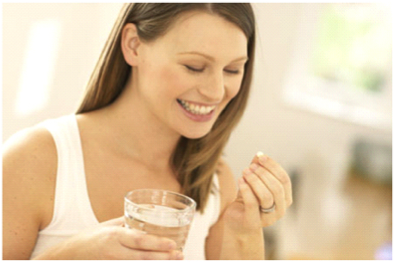The desire of most women is to get probably the most out of the only life we’ve been given. Raising children, dealing using the demands of home, work and meeting the needs of so many within our circle of responsibility, may leave us drained, as well as depleted of vitamins that help our overall system do its best to function in top importance.
Women have unique nutritional needs because of the ways by which their bodies function. These nutritional needs change, with respect to the woman's age. If they are trying to start a family, they'll require different vitamins and minerals than women who are dealing with menopause. Whatever life stage you are at, your body may benefit from the wide variety of vitamins and minerals that help your body function in an optimal level.
Iron
Iron is essential for transporting oxygen to organs and tissues through the body. It is also vital for the manufacture of red blood cells, aiding the immune system and cognitive development. If your iron levels become depleted, you will discover yourself feeling fatigued even if performing non-strenuous activities. Menstruation depletes your body’s iron, so during this time it's important to eat iron-rich foods or take a daily supplement. Sources of iron include leafy, green vegetables, fortified cereals, fish, turkey, chicken and legumes.
Vitamin D
Vitamin D is one more leading vitamin for women's weight loss. If you have adequate vitamin D inside your body obtained from your diet and sunshine, you tend to be more possible to lose weight and stomach fat by consuming a low-calorie diet. A supplement of 400 IU every day, but your physician can do a blood examination to ensure if you have an insufficiency of vitamin D and, if that's the case, how much you exactly require to make up for the shortage.
Vitamin E
The antioxidant Vitamin E is ideal for your skin, so most women will want to ensure they're getting their quota to promote a healthy, smooth complexion that glows. Vitamin E also helps protect cells from damage, boosts your immune system and could prevent some chronic diseases. Sources include wheatgerm, nuts like almonds, sunflower seeds, spinach and avocado.
Folate
Folate accounts for the production of new cells, keeping the nervous system healthy and maintaining balanced emotional and mental health. If your folate levels are low you may become anemic. Insufficient folate during pregnancy can lead to birth defects such as neural tube defects. Sources include legumes, fruits, green, leafy vegetables, and fortified cereal.
Vitamin C
Vitamin C helps using the healthy development and repair of bones, teeth and body tissue. Additionally, it contributes to the production of a protein referred to as collagen, which is vital for the formation of tendons, ligaments, skin, cartilage, and blood vessels. Additionally, it has powerful antioxidant properties so it helps reduce the damage caused by free radicals. Depleted levels of this vitamin can cause dry hair and skin, impaired immune function, and slow wound-healing. Sources include citrus fruits, broccoli, red peppers, and kiwi fruit.
Calcium
You need calcium to maintain healthy bones and teeth throughout your life. It also helps with muscle contractions and secretion of hormones. If your body falls short of this mineral you will be at risk for the bone disease osteoporosis, where the bones become brittle and very fragile. Natural sources of calcium include: cheese, milk, yogurt and dark-green, leafy vegetables.
